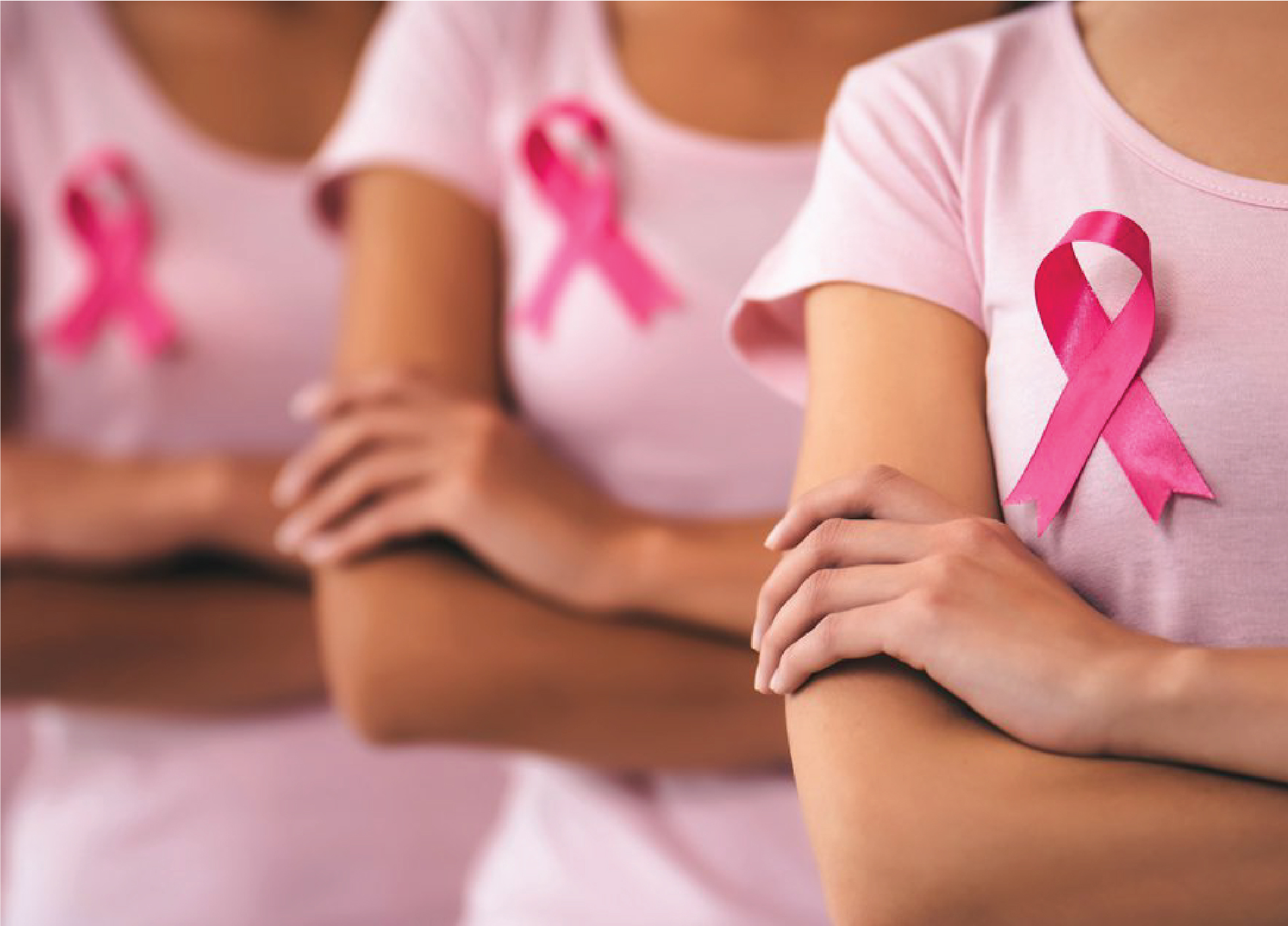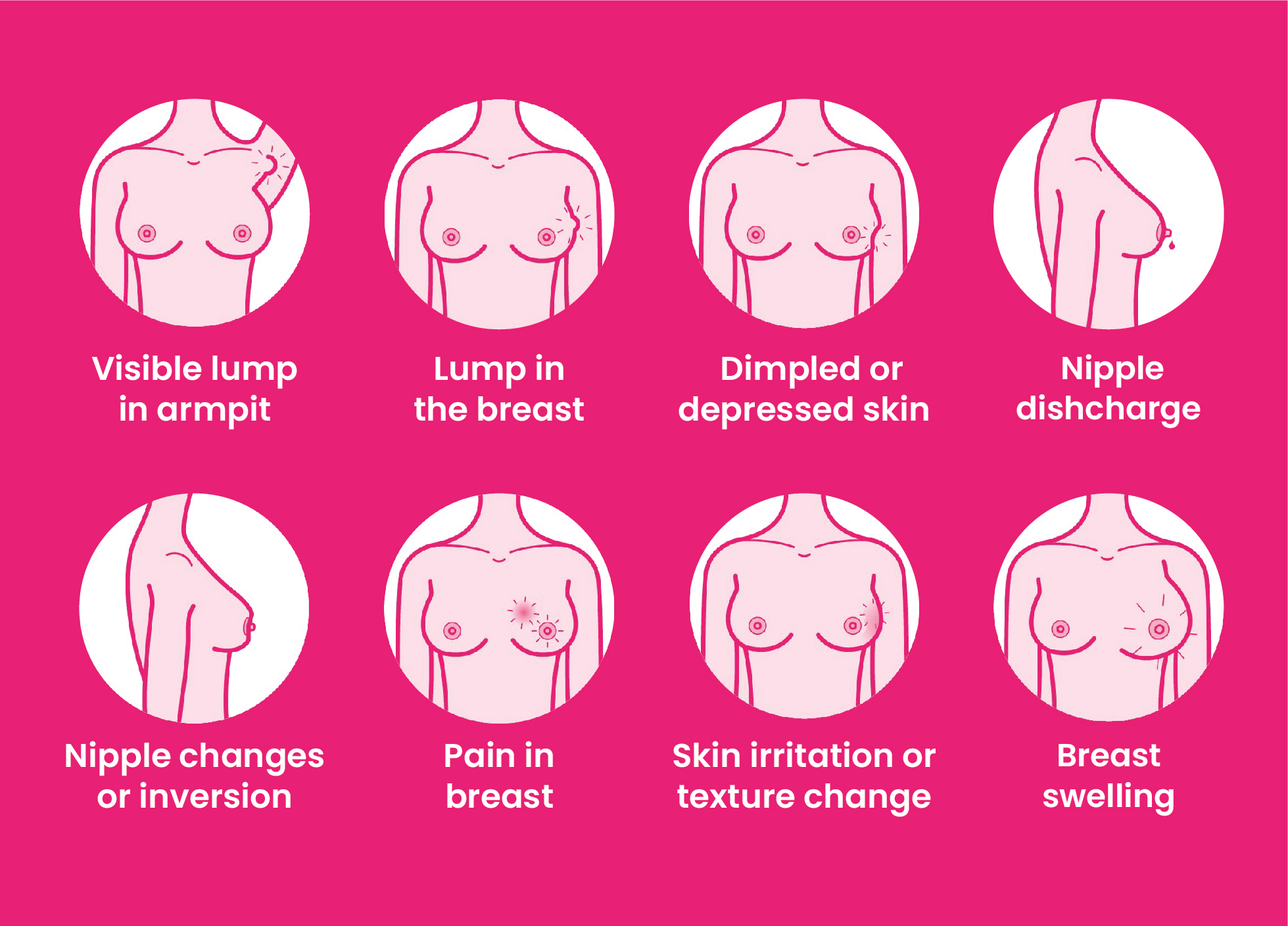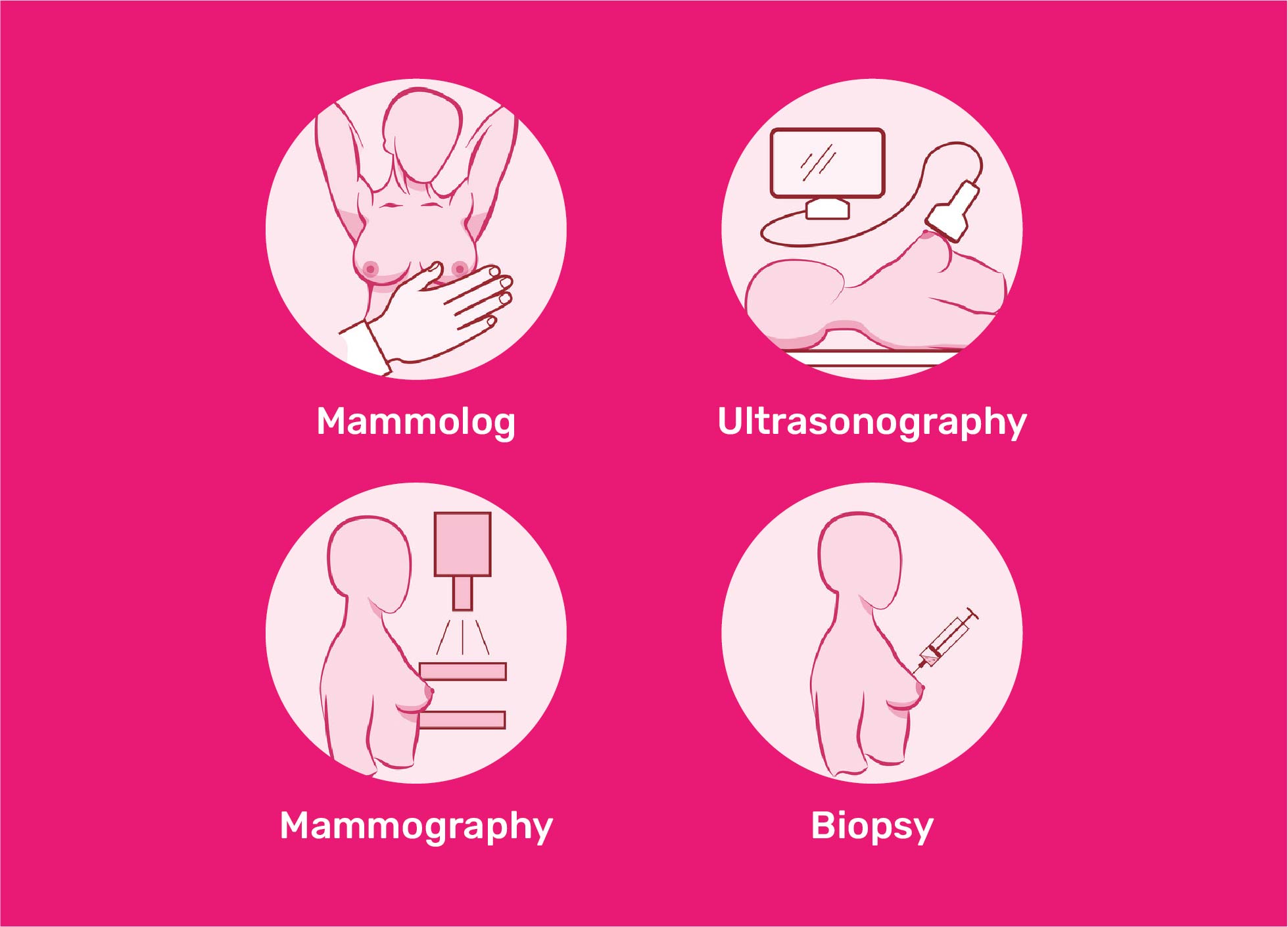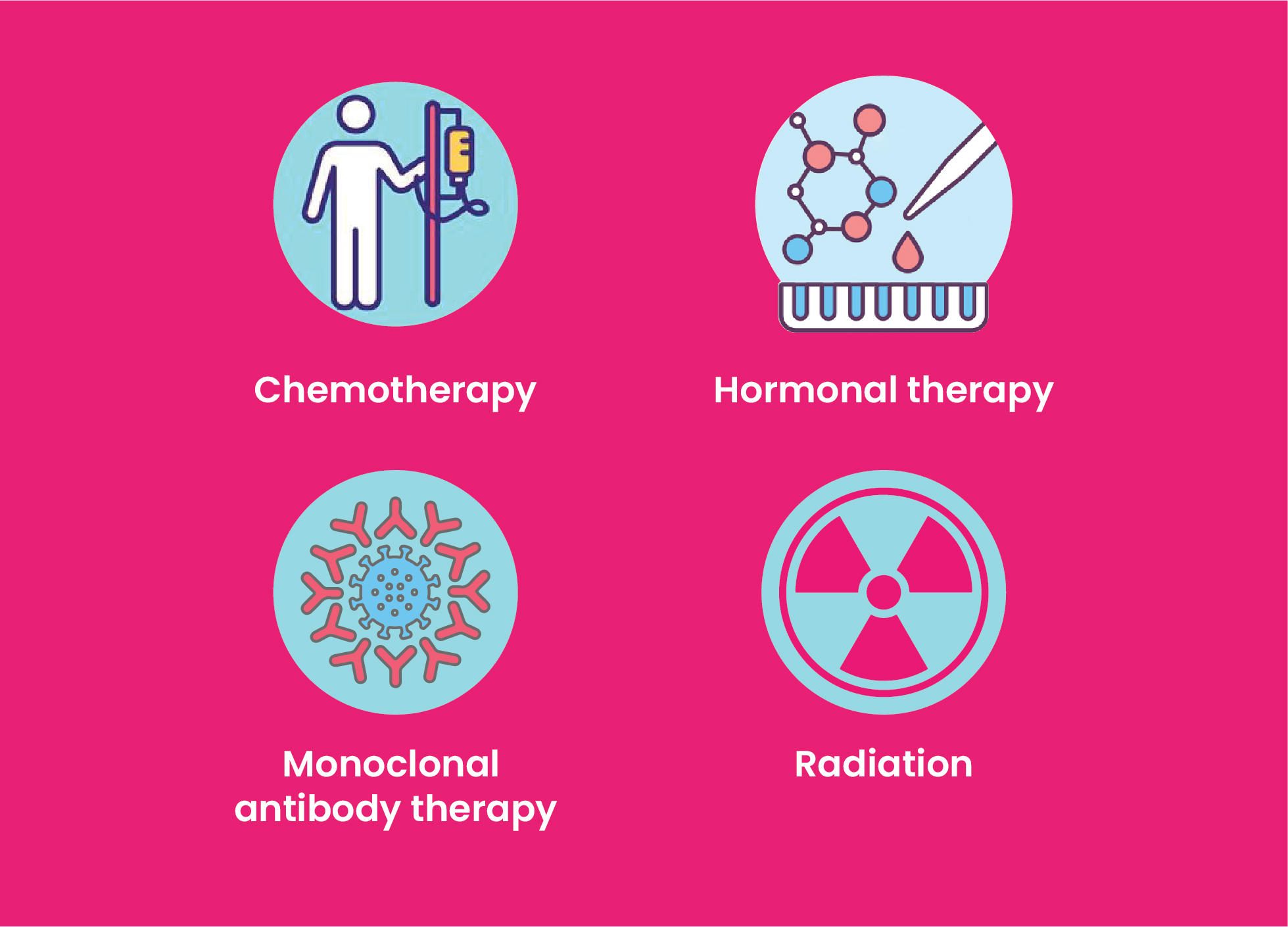What is Breast Cancer?
Breast cancer occurs when cells within the breast start multiplying unusually to form a tumor. It’s one of the foremost common cancers known in India, and women between the ages of 30 to 50 are at a high risk of developing it.Breast cancer affects breast tissue that contains milk-producing glands called lobules and thin tubes called ducts. Breast cancer usually affects women but can also occur in men and children, though it is very rare.
Types of Breast Cancer
There are several types of breast cancer. These can affect various parts of the breast. Breast cancer is often divided into non-invasive and invasive types.

What are the Causes of breast cancer?
The actual cause of breast cancer is not known, but there are some factors that increase the risk of developing breast cancer.
The factors that increase the risk of breast cancer include:

What are the symptoms of breast cancer?
Some of the signs and symptoms of breast cancer are as follows:
Breast cancer is treatable, and chances of survival increase if it is detected on time. The best way of early diagnosis is to know the signs and symptoms of breast cancer.
How to Diagnos Breast cancer?
The doctor will ask for the medical history which will be followed by a physical examination. During the physical examination of the breast, the patient will be examined for the size of breast, location and abnormality of the nipple, color and texture of the nipple and lump in the breast. Once some abnormality is detected, the patient will be subjected to the following investigations.

Breast Cancer Treatment in Pune
Breast cancer is treatable and chances of survival increase if it is detected in time. Treatment of breast cancer depends on stages (0-IV) which is how far advanced the cancer is and the types of cancer. Breast cancer is 'staged' according to tumor size, involvement of lymph nodes, and whether it has spread outside the breast and lymph nodes to other parts of the body or not. This information is used to help decide and plan the best treatment.

The presence of biomarkers such as hormone receptors and a receptor called HER2 also helps to determine what type of therapy is given. Treatment of breast cancer includes Surgery, radiotherapy, hormonal therapy, chemotherapy and targeted therapy.
FOLLOW UP
It is recommended to visit your doctor every 3-4 months for the first two years after finishing treatment, every 6-8 months from years 3-5 and once a year thereafter. You will also have a regular MRI and mammography every year.You also need to monitor side effects associated with the therapy and if found talk to your doctor about it.
Dr. Shona Nag is Pune’s leading Medical Oncologist. Consult her for any breast related problems.
For an appointment call: 9607963440 or email: shonanag3@gmail.com
Busting myths about breast cancer
How Using deodorant causes breast cancer?
Some misinformation has led women to believe that chemicals in antiperspirants and deodorants can lead to breast cancer, there’s no evidence that this is true.
Does Wearing a bra causes breast cancer?
A study concluded that women who wore a bra were at no greater risk of developing cancer than women who did not wear a bra.
Why Men do not get breast cancer?
Breast cancer in men accounts for about 1% of all breast cancer cases (men & women combined) and about 0.2% of all types of cancers in men.
Do Breast cancer doesn’t always come in the form of a lump?
It’s always not necessary that a lump can cause breast cancer, there are other symptoms like Skin thickening or redness in or around your breast, breast warmth, and itching, nipple changes or discharge.
Sugar feeds cancer. Do Drinking milk can cause cancer?
All cells including cancer cells require nutrients such as sugar to survive, but the microscopic requirement for sugar at the cancer cellular level is not directly linked to the sugar content of what we eat and drink.




